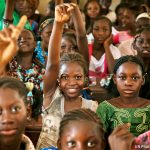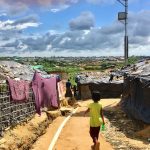What South America’s classrooms can teach the rest of the world
By Christina Myers
Nelson Mandela said that education is the most powerful weapon we can use to change the world. Education has also historically been among the most widespread and popular responses to social justice. As a result, education is often taken as a ‘fit-for-all’ solution, where the benefits of access to education are unquestionably positive.
At the same time, traditional education institutions have been criticised for reinforcing social exclusion. In the United States, for instance, 80 percent of 18 to 24 year-olds from the top family income quartile were enrolled in postsecondary education in 2014, compared with just 45 percent of those in the bottom quartile.
Many inclusive education initiatives, such as Massive Online Open Courses have focused on university fees, physical access and time constraints as the main barriers to education. However, research has shown that the most transformative innovations in inclusive education are not likely to come from techniques to promote access alone.
To achieve inclusive education, it is important to consider the omnipresence of power structures; the divergent interests of the actors involved; the importance of contextualisation of education; and the possibility to challenge models of education and pedagogy. In any case, perhaps the first question to be asking should be: What is the role of education and why it is important to make it inclusive?
Read the article in full here.



